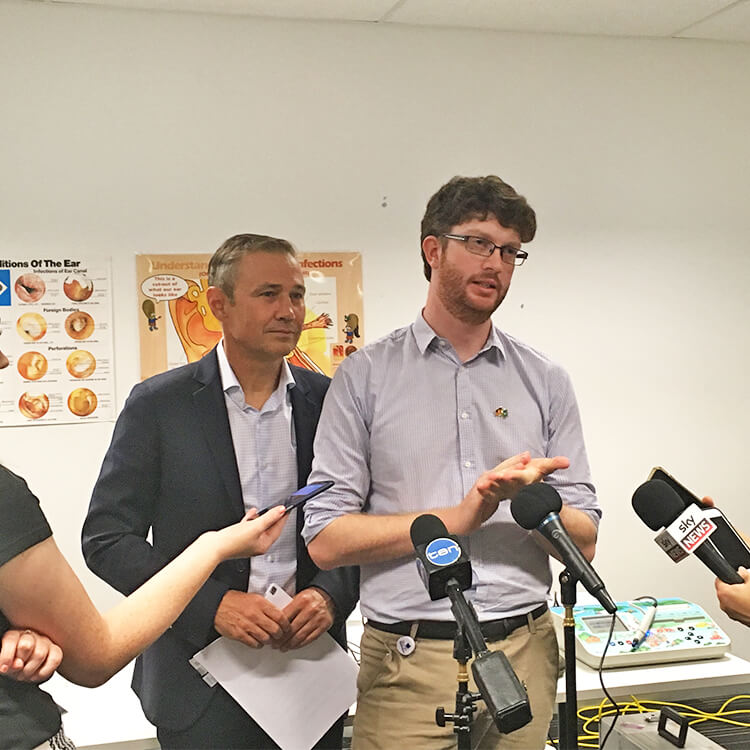Search
Research
Children with secondary care episodes for otitis media have poor literacy and numeracy outcomes: A data linkage studyWe examined the association between otitis media and educational attainment in a retrospective population cohort of Western Australian children who participated in the Grade 3 National Assessment Program—Literacy and Numeracy in 2012.
Research
The reliability of video otoscopy recordings and still images in the asynchronous diagnosis of middle-ear diseaseTo compare the asynchronous assessment of video otoscopic still images to recordings by an audiologist and ear, nose and throat surgeon (ENT) for diagnostic reliability and agreement in identifying middle-ear disease.
Research
Topical antiseptics for chronic suppurative otitis mediaTo assess the effects of topical antiseptics for people with chronic suppurative otitis media
Research
Systemic antibiotics for chronic suppurative otitis mediaTo assess the effects of systemic antibiotics for people with chronic suppurative otitis media.
Research
Associations between cardiovascular disease and its risk factors with hearing loss—A cross-sectional analysisWe investigate the relationship between hearing loss and cardiovascular disease risk factors.
Research
Production of IgG antibodies to pneumococcal polysaccharides is associated with expansion of ICOS+ circulating memory T follicular-helper cells which is impaired by HIV infectionDysfunction of T follicular-helper cells is a possible cause of impaired germinal centre and IgG antibody responses in individuals with HIV
Research
How Accurate Are International Classification of Diseases-10 Diagnosis Codes in Detecting Influenza and Pertussis Hospitalizations in Children?Influenza diagnosis codes had high specificity (98.6%) and modest positive predictive value (PPV; 84.1%) and sensitivity (86.1%) for a laboratory-confirmed...
Research
Hospitalisation for bronchiolitis in infants is more common after elective caesarean deliveryThe authors previously reported an increased risk of hospitalisation for acute lower respiratory infection up to age 2 years in children delivered by...

News & Events
New ear health study music to the ears of Aboriginal childrenWait times for Aboriginal children suffering ear infections could be reduced to less than four weeks thanks to a new The Kids Research Institute Australia research project
Research
“We've wanted to vaccinate against it and now we can”: views of respiratory syncytial virus disease and immunisation held by caregivers of Aboriginal children in Perth, Western AustraliaRespiratory syncytial virus (RSV) is a major cause of respiratory infection with a higher burden in Aboriginal and Torres Strait Islander infants and children. We conducted a pilot qualitative study identifying disease knowledge and willingness to immunise following the changing immunisation landscape for infant RSV in 2024.
